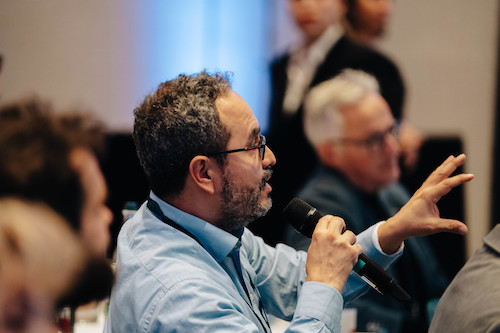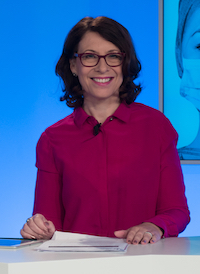
- Reframe convoluted questions: If a question is overly long, vague, or hard to follow, help your audience by tightening it up.
“I am sorry I can’t quite grasp every detail of your question, but I would like to respond to your part about X” - Be clear when you don’t know the answer: You can’t have all the answers. Here are three options on what to say when you don’t have the answer:
i. Say ‘I don’t know’ – you’ll get back to them. Never, ever, guess.
ii. Ask someone in the audience to respond who is an expert on the subject.
iii. ‘I’m not 100% sure’ When you say this you’re not saying ‘I don’t know’, you’re saying ‘I’m not completely sure’, which is a totally different thing. - Answering challenging questions: When faced with a challenging question from that angry staff member, board member or at an official hearing – you need to employ the ABC technique I teach in media training - acknowledge the question, potentially reframing it before you bridge to a broader point you want to make – moving from the specific to the general.
- Group multiple questions by theme: One client of mine has to answer up to twenty different questions, including sub-questions on at least five different topics or different aspects of one topic every time she appears in front of a parliamentary hearing in less than five minutes!
She groups the questions under themes and then answers any miscellaneous questions. She even manages to acknowledge some of the MEPs by name. This takes practice and skill. - Answer questions individually if possible: It is much easier for you to answer questions one by one as you won’t forget them, and it helps the audience too, who can lose track if you answer multiple questions in one go.
- Have a process for taking online questions: When I moderate online press briefings or panel discussions, I also group the questions that flood in from journalists thematically. However, I signpost clearly which question is for which speaker and ask them one by one.
I also like to have a google doc where the event producer can copy and paste the questions as they come in on the chat. They can tweak the English and prioritize the question, even suggesting which question goes to which speaker. This makes it easy for me to group by theme, and ensure that each speaker gets at least one question.
Author's bio
 Claire Doole is a former BBC correspondent and international spokeswoman who is passionate about helping people communicate with confidence. Since 2006, she has successfully trained hundreds of professionals in the art of presenting and public speaking, talking to the media, managing communications in a crisis, and writing for the web. In addition, she has coached C-level executives and public figures to give powerful TEDx and TED style talks in Europe and the Middle East. A Swiss and UK national, Claire trains and coaches in French and English.
Claire Doole is a former BBC correspondent and international spokeswoman who is passionate about helping people communicate with confidence. Since 2006, she has successfully trained hundreds of professionals in the art of presenting and public speaking, talking to the media, managing communications in a crisis, and writing for the web. In addition, she has coached C-level executives and public figures to give powerful TEDx and TED style talks in Europe and the Middle East. A Swiss and UK national, Claire trains and coaches in French and English.
Claire is also a highly experienced moderator having facilitated panel discussions with government ministers, NGO activists, humanitarians and human rights specialists at major events.
Claire helps clients design their virtual, hybrid and in-person events and runs workshops on organising and moderating at events.






